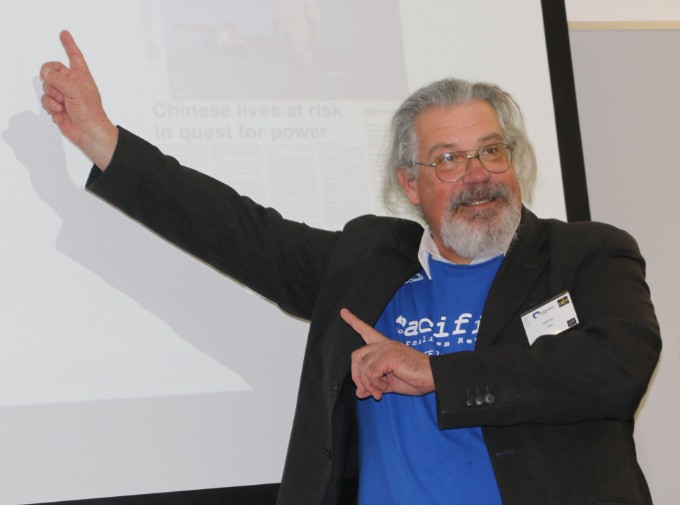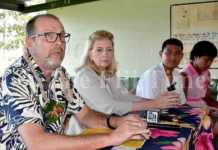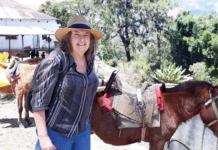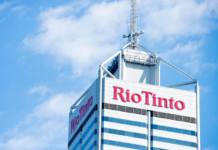
Pacific Media Watch Newsdesk
Acting editor of the Pacific Media Centre’s Pacific Journalism Review Dr Philip Cass has cast doubt on the success of Australia’s plans to export TV shows to the Pacific.
In November last year, the Scott Morrison government announced a $17 million deal to share 1000 hours of top-rating Australian content a year with the Pacific in an effort to improve connections in the region.
Dr Cass told SBS News that while several New Zealand shows had proved popular in Polynesia and the Central Pacific, the reality-TV shows that Australia was planning to share might not be as relevant.
READ MORE: Australia needs a Media Freedom Act – here’s how it could work
“Given the size of the Pacific diaspora in New Zealand, and the close links and travel with the home countries, there is a strong familiarity with New Zealand drama and news in the islands,” Dr Cass said.
“Shows like Shortland Street have been popular because of the Pasifika and Maori characters and have at times been a way for people to discuss culturally sensitive issues through story lines.”
According to SBS News, Free TV, which represents Australian commercial channels, was tasked with negotiating with Pacific broadcasters on the types of programs to be made available.
Twelve months after the deal was announced, Free TV hadn’t begun discussions with Pacific stations, a communications department spokesperson revealed.
“Free TV will soon commence work to consult with Pacific broadcasters that will inform a selection of Australian content that is suitable for each Pacific broadcaster,” the spokesperson said in a statement.
The government expected the first Australian shows to air under the deal next year, but would not say which month.
Free TV chief executive Bridget Fair defended its progress.
“We are well advanced in planning for the Pacific TV project,” Fair said in a statement.
“We expect to commence providing content to our Pacific partners in 2020, but we are not in a position to provide further details of the project at this time.”
In February, the Communications Department said the full-suite of programs would be on offer, ranging from drama, documentary and reality television shows such as The Bachelor.
The Bachelor could be part of Australia’s offering to Pacific broadcasters next year.
Jemima Garrett, co-convenor of the Supporters of Australian Broadcasting in Asia and the Pacific, urged the government to pursue more innovative approaches to building connections, rather than an “old-style” strategy of sending existing programs created for Australian audiences.
“Reruns of Love Island or Border Security are not going to help Australia’s standing in the region in the same way that a more interesting project could,” Garrett told SBS News.
Garrett, a former ABC Pacific correspondent, said Australia has had a “tin ear” and any new broadcasting deals should focus on collaboration.
‘Part of the same Pacific family’: Fiji PM visits Australia, despite scathing climate attack
Supporters of Australian Broadcasting in Asia and the Pacific is lobbying the government to invest in a broader, long term strategy of partnering with local media to produce original content.
“Then Australians will see a new range of really exciting, interesting stories that we’re not getting to hear at the moment because we just haven’t got enough of a media presence in the region and we’re not listening to the people of the region who have got a lot to offer us,” Garrett said.
Otherwise, Australia risks losing more ground to China which is increasing its media presence in the area, Garrett warned.
While Chinese government media agency Xinhua has a correspondent based in Fiji’s capital Suva, there is no Australian reporter there.
“For Australia, the closest neighbour to the Pacific, not to have a voice of any significance is a terrible oversight,” Garrett said.
International Development and the Pacific Minister Alex Hawke referred questions to the department which did not respond to questions about longer-term plans to support media in the Pacific.













































